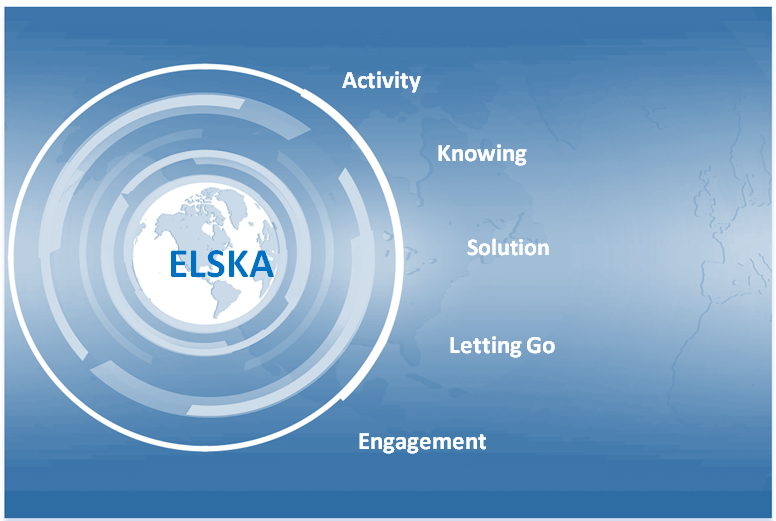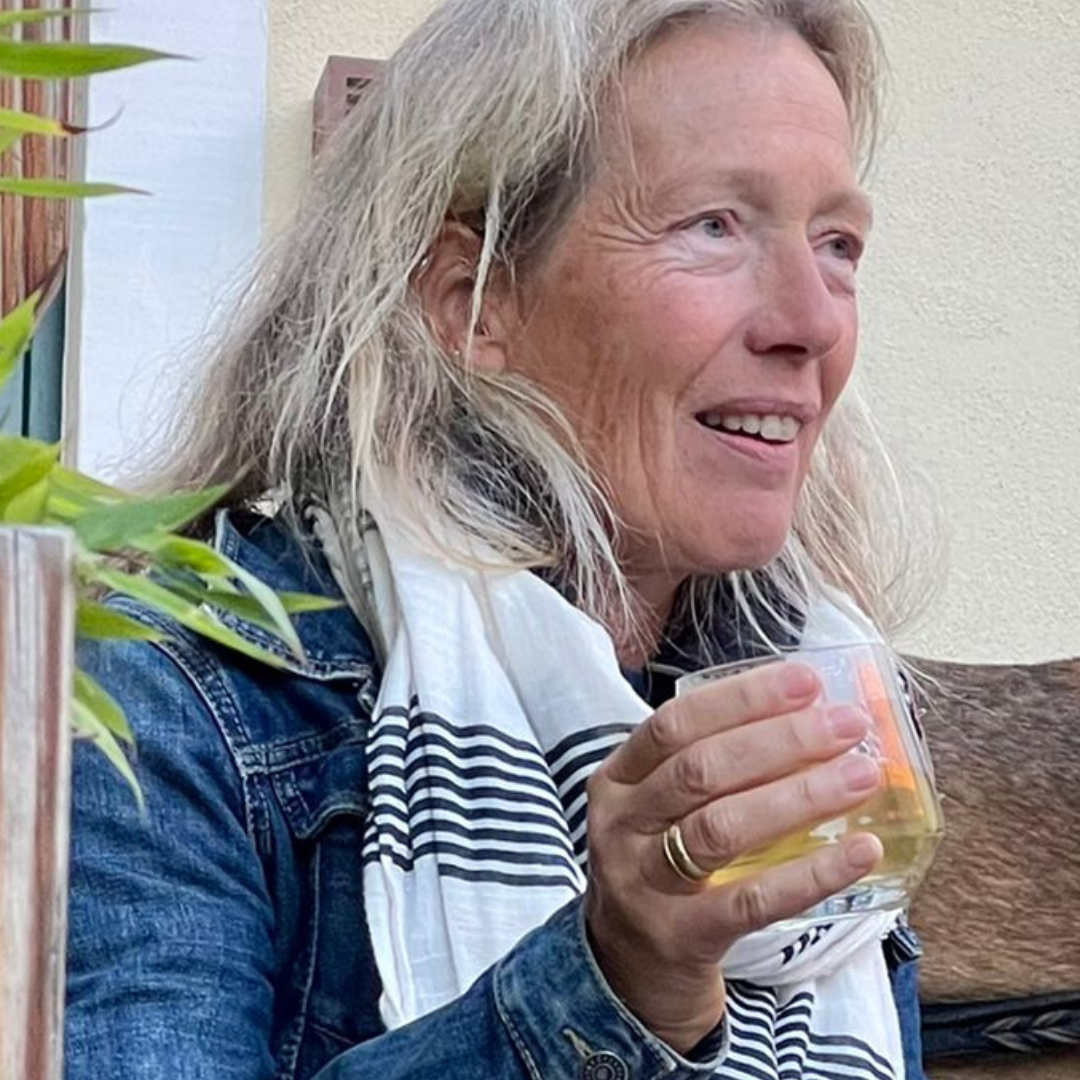A Coaching Model By Regina Onderka, Change Coach, Life Coach, GERMANY
ELSKA
Elska is a name and it has a meaning.
The name is Elska is a girl’s name meaning “love”. This name looks like a sister to Elsa and the Czech name for girls Eliška, a popular diminutive of Elizabeth — and sometimes it is (in German, for example). (Wikipedia)
But it is also a word in Old Norse and some modern Nordic languages, meaning “love” or “to love”.
Love – is so essential, critical, and important for everything we do, for everything in this world.
For my change coaching model, I like to draw attention to the importance of self-loving and life love.
In an article from the Health Coach Institute Merriam-Webster defines self-love as “an appreciation of one’s own worth or virtue” and “proper regard for and attention to one’s own happiness and well-being”.
Self-love is not about being selfish, disregarding and ignoring anything and anybody around us – it`s even the opposite – the more we accept as we are, and truly take care of ourselves, the more we will also take care of everything around us, we will love life and everything in it – loving the world – and being loved.
Therefore self-love also plays a very important role in personal coaching. Self-loving is a strong – if not the strongest – emotion we have as a source of energy.
When we love, value, and respect the world, we will also make choices that support our personal development respecting love, values, and the world and we will engage in actions that will help us to change and grow.
ELSKA means Love and as a coaching model it stands for:
- Engagement/Emotion
- Letting-Go
- Solution
- Knowing
- Activity

ELSKA – A Change Coaching Model
Engagement
The first step is to analyze where you are and how you feel about it. Where are you now?
What topic do you have in mind and want to discuss? And, thinking about your topic, what does this look like for you?
Picture yourself in the world and everything that surrounds you, any relationship that exists – different layers, forms, colors, connections.
Having this picture in mind, what shape do you see for yourself, how would you describe your surface or the texture (rough, clear, hard, soft, etc.), and even what color comes up?
What emotions come up for you? And in that moment, if your emotions would have a voice, what would they tell you?
Letting Go
In our life we are constantly confronted with change – some changes are amazing, surprising, and positive as such and in that way easy to cope with, others are more fundamental and some are really brutal and difficult. The world constantly changes and we are part of it.
The same applies to intrinsically motivated changes. For example, we articulate a personal wish to change – eg I want to find my new identity, I want to find meaning in what I do, I want to find a new purpose, I want to become healthier or I want to use my strength better, I want to improve or change relationships for the good, etc.
All of this requires our adaptation: to a new situation, to new circumstances, to a different phase of our life. And, in order to do so, we have to accept, adapt and change our behavior – unlearn old behaviors and learn new ones – let go and take on a different form of mastering ourselves in life, mastering our life.
Letting Go is about starting to articulate what we want to let go. Articulating your emotions with a first focus on forward-looking regarding what to change.
Knowing
The Knowing part is strongly connected to Letting-Go and will go deeper. It is about gaining full awareness about what`s up, what`s needed, and what it might take.
As individuals we are complex in the way we feel, act, resist, refuse, strive, deny, try … the list will become very long and that`s good!
We intrinsically most often know what is needed, and we can learn to trust ourselves and the strengths we have. Reassure ourselves that we love ourselves and our life, we know that we can.
Part of knowing will be to shine a light on what we are able to do. What strengths do we have?
What is working well? What can we rely on?
Gaining deeper insights into the changes is important. Not only do we change but we go through different stages. Along the way, things happen that require change. We get older, more experienced, and this has a big impact on how we feel and act for ourselves and within our relationships. What can we learn?
We are competing with different forces, we get pulled or pushed in different directions, and not always does this feel ok. Fear and anxiety are companions as much as happiness, courage, and excitement. It`s never the one or the other – it`s all in different shapes, forms, colors, surfaces, heights, and lows – and often all at the same time.
We know our patterns and also what worked well in the past – being it helpful or not.
Knowing also ties back to the initial question: Where are you? What color, shape, and surface do you picture yourself? What changes to this picture do you see now?
How can this also help to see change positively?
Ask yourself: What if I saw myself rough, with edges, and black and now I start seeing myself changing – I`m more soft, more blue or yellow, more connected? What does the color mean to me?
What has changed in the course of the coaching conversation so far?
What is a good starting point to see the chances and the choices?
Solution
This step is critical to move the needle. The solution is there and it`s getting clearer, it literally is shaping up.
What is the most important or critical step to take now? What will help you to make a step forward? What can you start doing now? What do you want to leave this session with? What do you still need? And also what is hindering you?
The solution phase will be another strong moment of truth – a moment of deep feeling about yourself, as you will start to feel that it can be done! What a strong emotion!
The solution phase is also there to strengthen yourself and reiterate what and who you are, what is possible, and how best to build on your existing strengths.
It is about saying: I want, I will and I can!
Activity
At this stage we have reached the awareness about who we are, and what to let go of, we know and feel what we want to do. We have a solution in mind – we are more united with ourselves – or in simple words we see that we can love ourselves and this fuels our tank for taking action.
Action-taking is often underestimated as it is much easier to analyze and talk only.
Taking action can be very liberating and it will give us even more power and energy to continue. Once we get started, the change will no longer be seen as a change because we do it.
We get fully engaged, we deeply know and feel what is needed and we will go about it.
Maybe at this point, our shape, surface, and color already became a really nice picture!
Action-taking will also bring us to the engagement phase again – as much as the world is turning and changing, we are part of it.
Finally …
ELSKA is a change coaching model helping to understand that change is also about Loving ourselves and our life and the world as such. It creates positive energy to picture ourselves moving along this journey.
Erich Fried, a famous German poet, wrote
It is nonsense says reason
It is what it is says love
It is calamity says calculation
It is nothing but pain says fear
It is hopeless says insight
It is what it is says love
It is ludicrous says pride
It is foolish says caution
It is impossible says experience
It is what it is says love
We have every good reason to embrace and be engaged in ourselves, others, life, the world …
Learn How to Create Your Own Coaching Model
Your Coaching Model reflects your values,
philosophies, and beliefs and must communicate who you will coach
and the problems you will solve. Read more about creating your coaching model
References
Wikipedia – meaning of ELSKA
Self-Love Definition – Article, Merriam Webster
ELSKA graphic: picture purchased via Colourbox
Poem Erich Fried – „Es ist was es ist“ – translated into English
